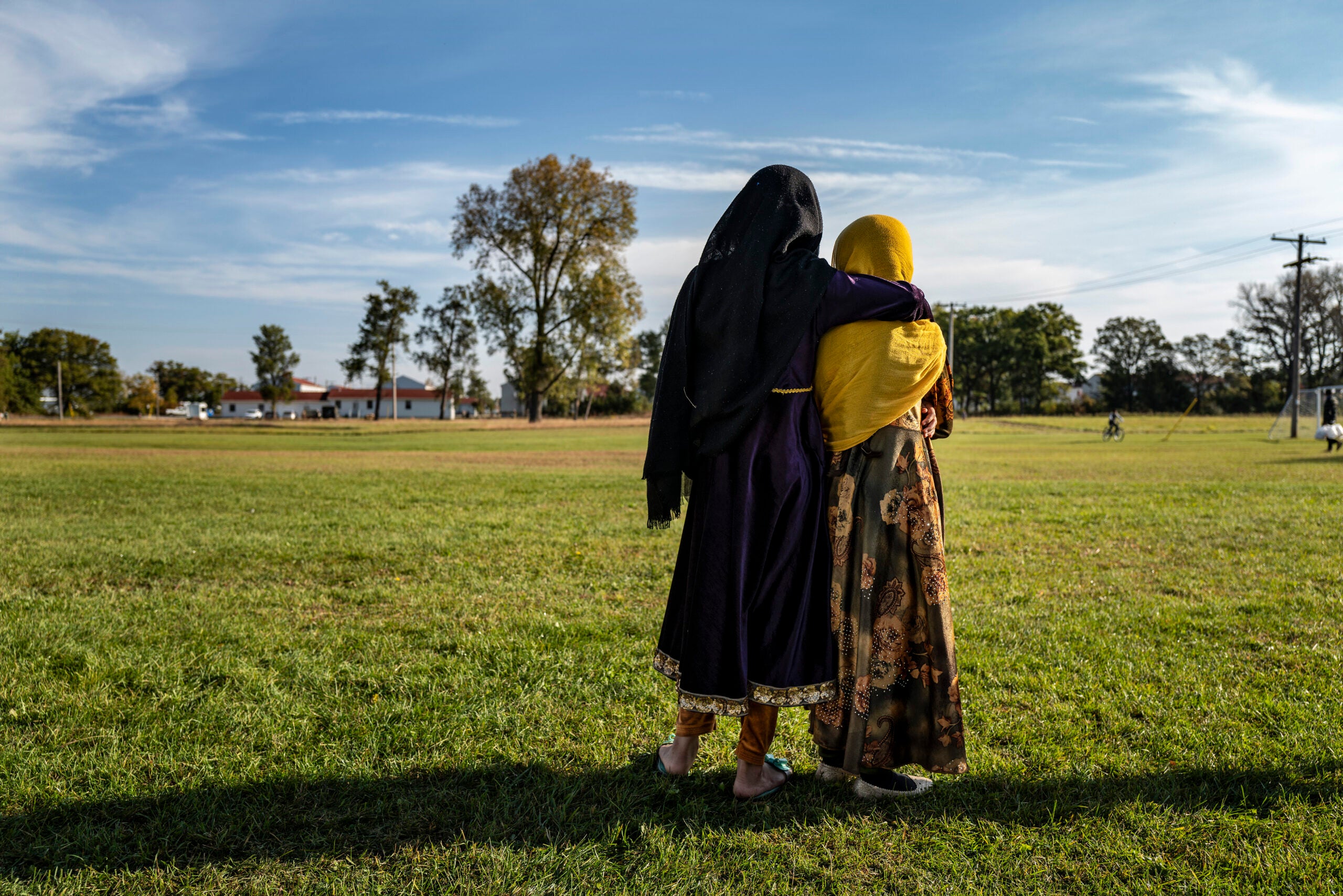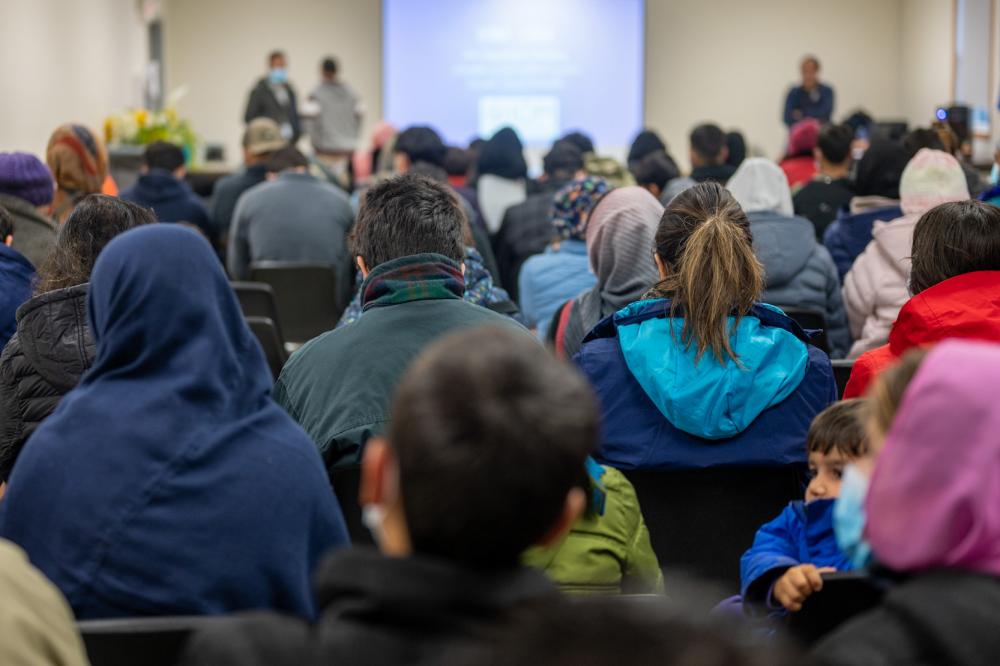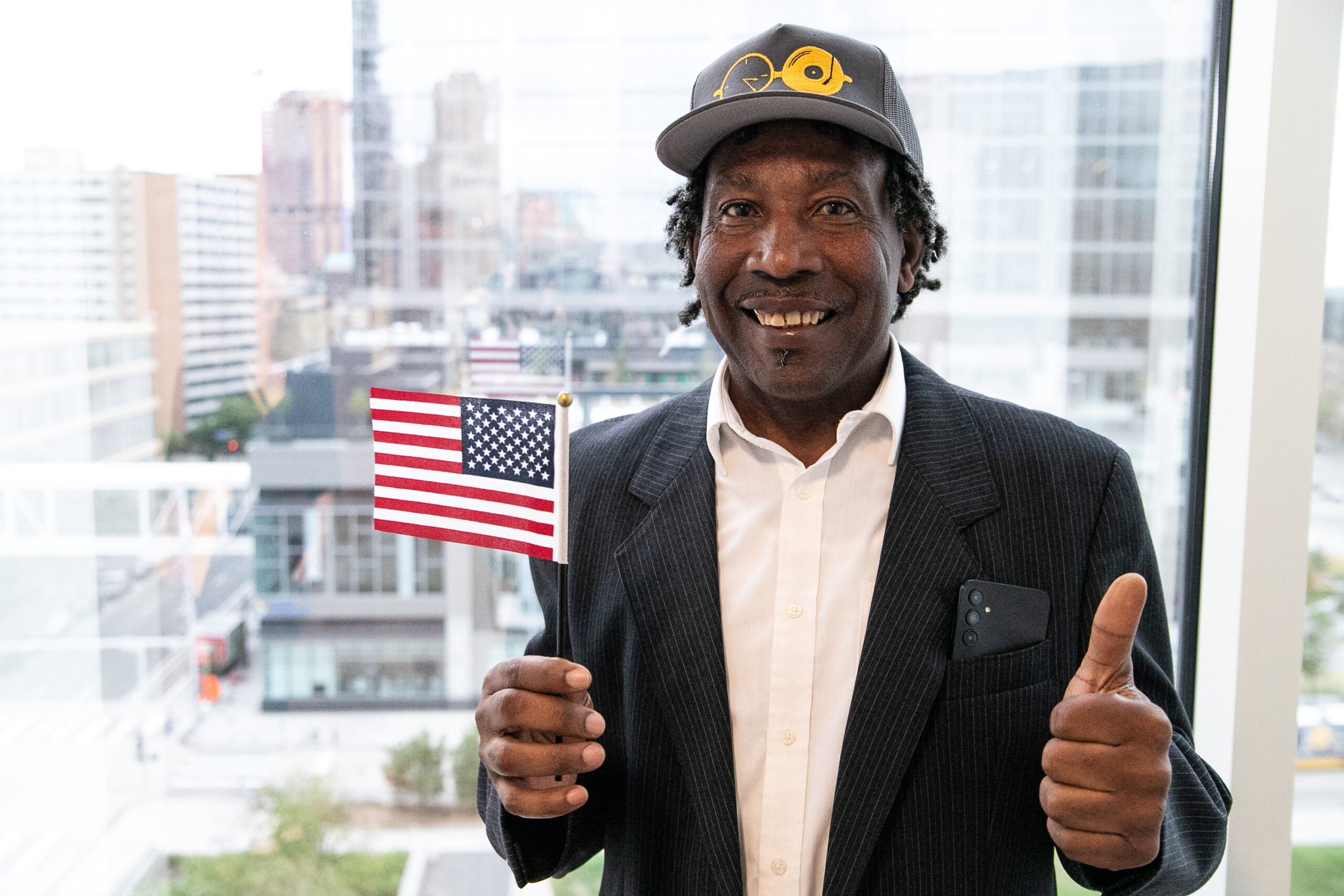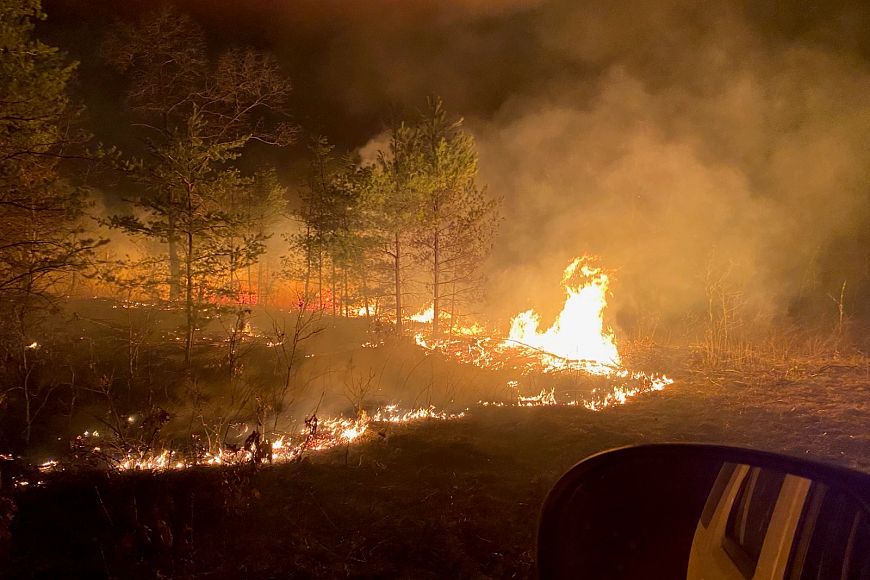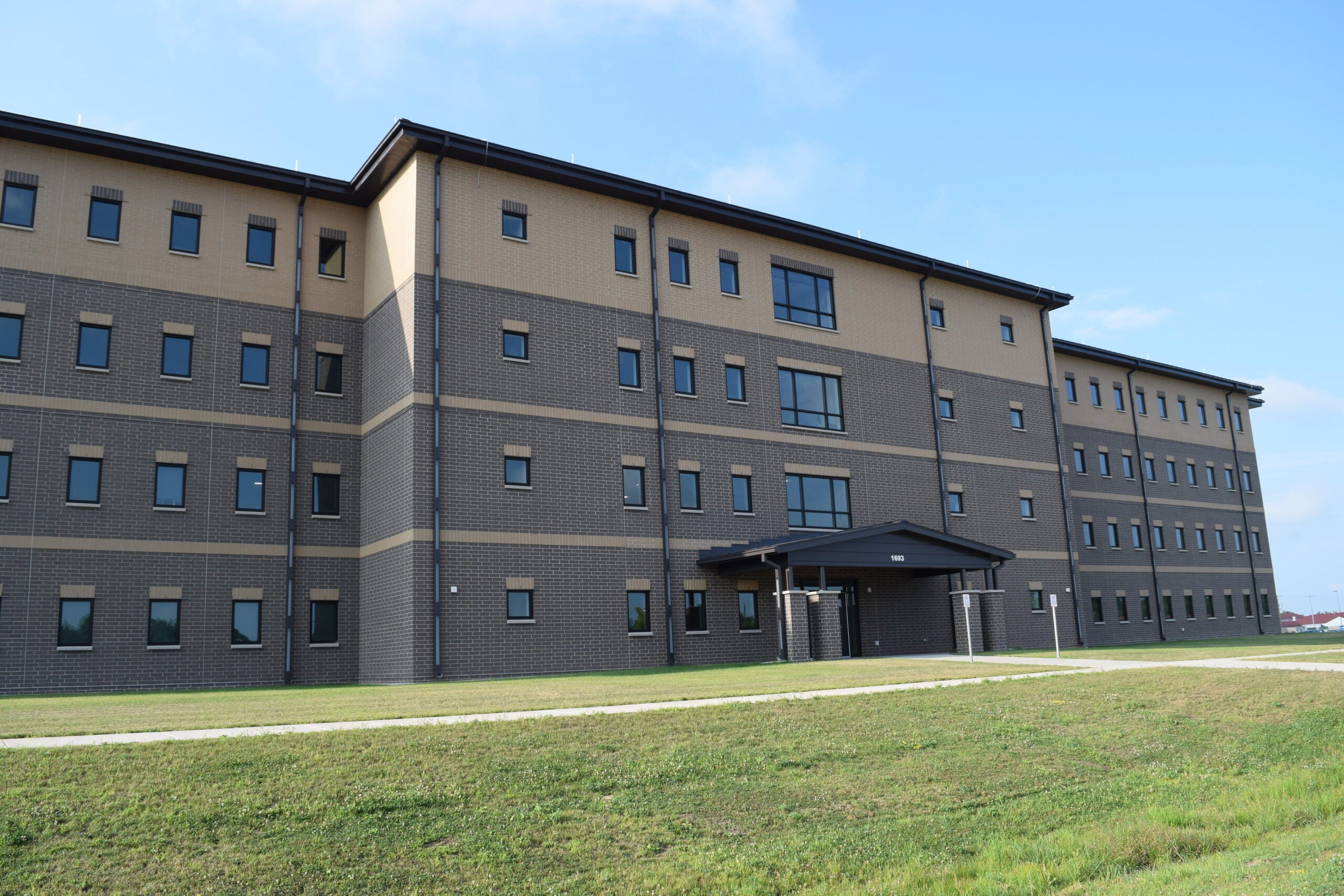After a 47-day journey, Momtazudin Furmoli and his family are finally headed home — a new home, 7,000 miles away from the one they left in Afghanistan as refugees.
Furmoli arrived at Wisconsin’s Fort McCoy on Aug. 30 with his wife, 5-year-old son, 2-year-old daughter and 15-year-old nephew. They learned just days ago that they would be leaving the base on Oct. 11 for their new home in Utica, New York.
“Right now, they are happy,” said Furmoli on their last night at Fort McCoy. Since they heard the news, he said the entire family had been counting the hours until their departure.
Stay informed on the latest news
Sign up for WPR’s email newsletter.
“Even my kids are asking me, ‘When will we go? When will we go?’” said Furmoli.
When the Taliban invaded Kabul, Furmoli was working for the U.S. Embassy in information and communication technology management. But when the embassy closed, he was out of work.
Furmoli said the entire city was living in fear and uncertainty.
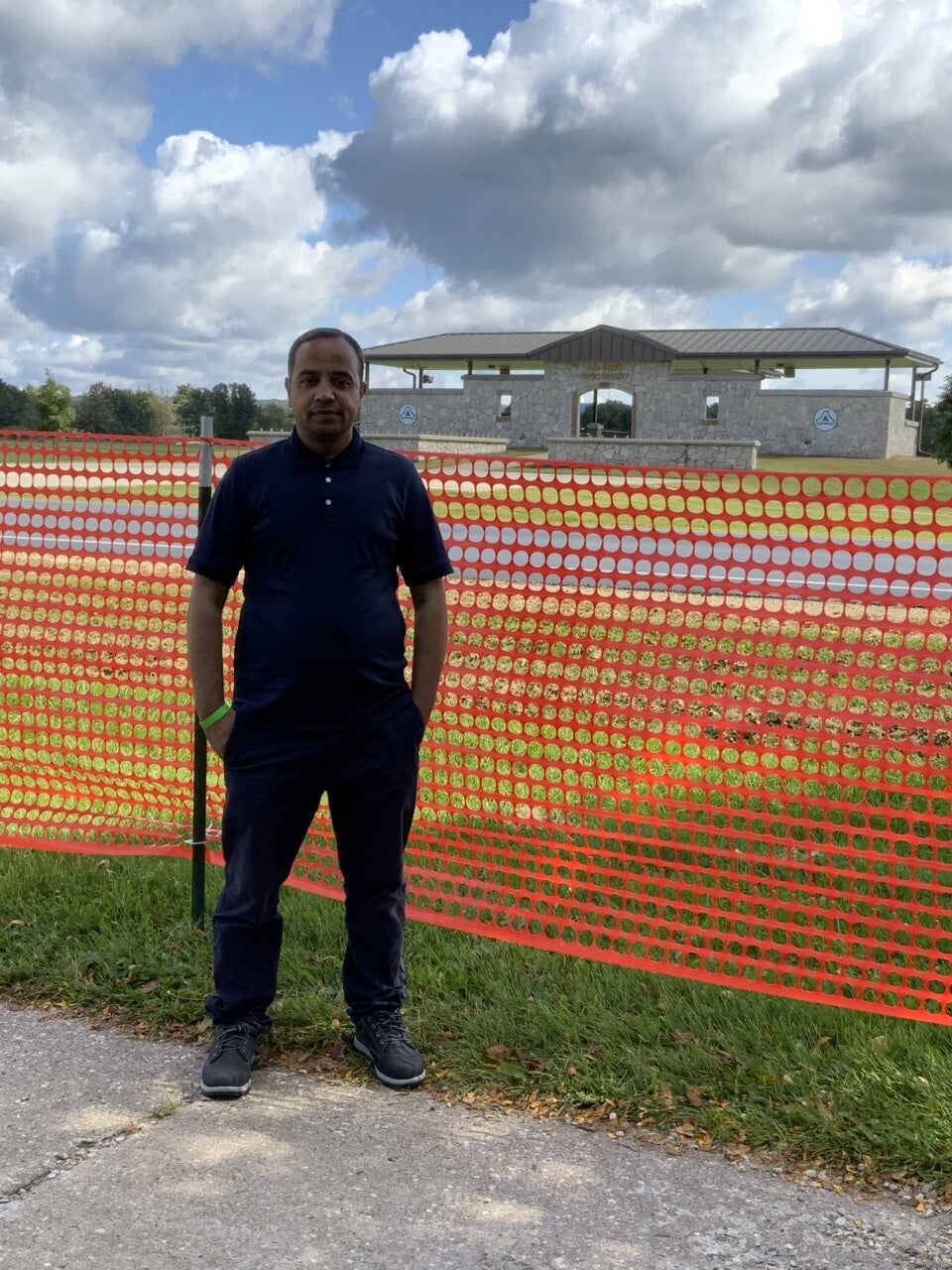
“The Taliban will search home by home who worked with the foreigners and who are the spies, so we felt like a day may come that they will capture us and maybe just even kill us,” he said.
Fearing for his safety, Furmoli made the difficult decision to leave Afghanistan. On Aug. 25, he and his family boarded a U.S. Air Force cargo plane headed for Qatar. Furmoli said they didn’t even have seatbelts.
After three days in Qatar, they flew to Dulles International Airport in Washington, D.C., for immigration processing. On Aug. 30, they finally arrived at Fort McCoy.
“Thirteen thousand (evacuees) came just within one or two weeks. It was a little hard for us,” said Furmoli. “Everything was a little disorganized.”
Conditions at Fort McCoy have been challenging, but Furmoli said they improved day by day. When he first came, he said they waited three to four hours for meals. Now, he said it’s an hour or less.
Furmoli’s biggest concerns during his time at the base have been getting his resettlement paperwork processed and staying in touch with his family back in Afghanistan.
When Furmoli and his family fled, they were forced to leave behind his mother and siblings in a precarious Kabul.
“We knew that if the Talbian once came into power, day by day, the political situation in the country will get worse,” said Furmoli.
He has spoken to his family by phone nearly every day and said that life in Kabul is deteriorating.
“The people are living in anxiety and uncertainty and a very poor situation,” said Furmoli. He added that the cost of living has gone up significantly and that many people have lost jobs and are now without income.
Furmoli’s sisters are both teachers, but since the Taliban has been restricting education for girls and women, they have not been able to go to work.
“Their daughters who were going to school and to the university, now there is no university, no school for them. All of them are at home, and they don’t have any income. So this is a big problem for them right now,” said Furmoli.
As much as he worries for his family members back in Afghanistan, Furmoli said it has also motivated him to focus on getting his family settled in the U.S.
When the news came last week that they would finally be leaving Fort McCoy, Furmoli said he was overjoyed to have a “final destination.” The resettlement agency booked his flight and rented a home for his family in Utica.
Now, instead of worrying about the future, Furmoli is busy planning for it.
He said he is eager to connect with his sponsor in Utica, get his driver’s license, enroll his kids in school and find an English language class for his wife so they can all start integrating with the community.
But his biggest concern is work.
”I have to find a job and be part of the workers there,” said Furmoli, “instead of getting just benefits from the settlement agencies.”
Furmoli said he hopes to find a job in his field — information and communications technology — and has already started applying. Once he has a steady source of income, Furmoli plans to pursue a master’s degree.
Six weeks after arriving, Furmoli is among the first wave of evacuees to be leaving Fort McCoy for resettlement across the country.
“At least this is a startup, and day by day it will be increased — the capacity of the people who will leave here, maybe from hundreds to even (500 or 600) or 1,000.”
Regardless of the numbers, Furmoli said that seeing evacuees finally leave Fort McCoy after six long and difficult weeks is sending ripples of hope throughout the camp. As families like Furmoli’s depart for their new homes, other residents are more hopeful their turn will come soon.
Furmoli said he knows some people may be apprehensive about welcoming Afghan refugees, but he is eager to share his Afghan culture with his new community.
“We hope to be a good neighbor for them,” said Furmoli.
Wisconsin Public Radio, © Copyright 2025, Board of Regents of the University of Wisconsin System and Wisconsin Educational Communications Board.
